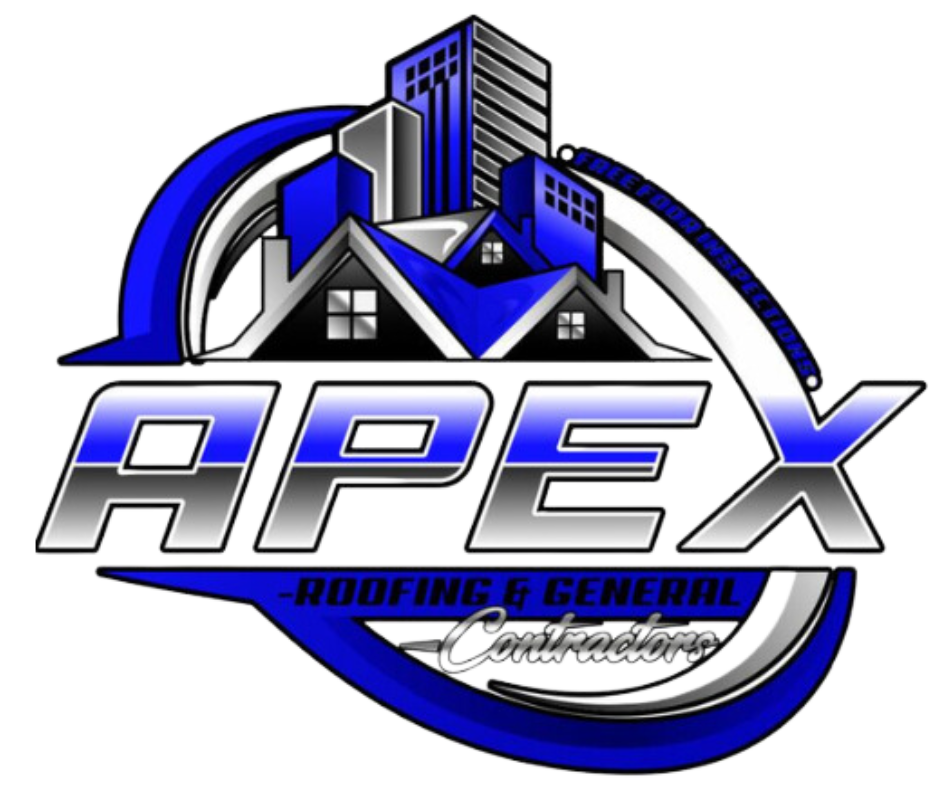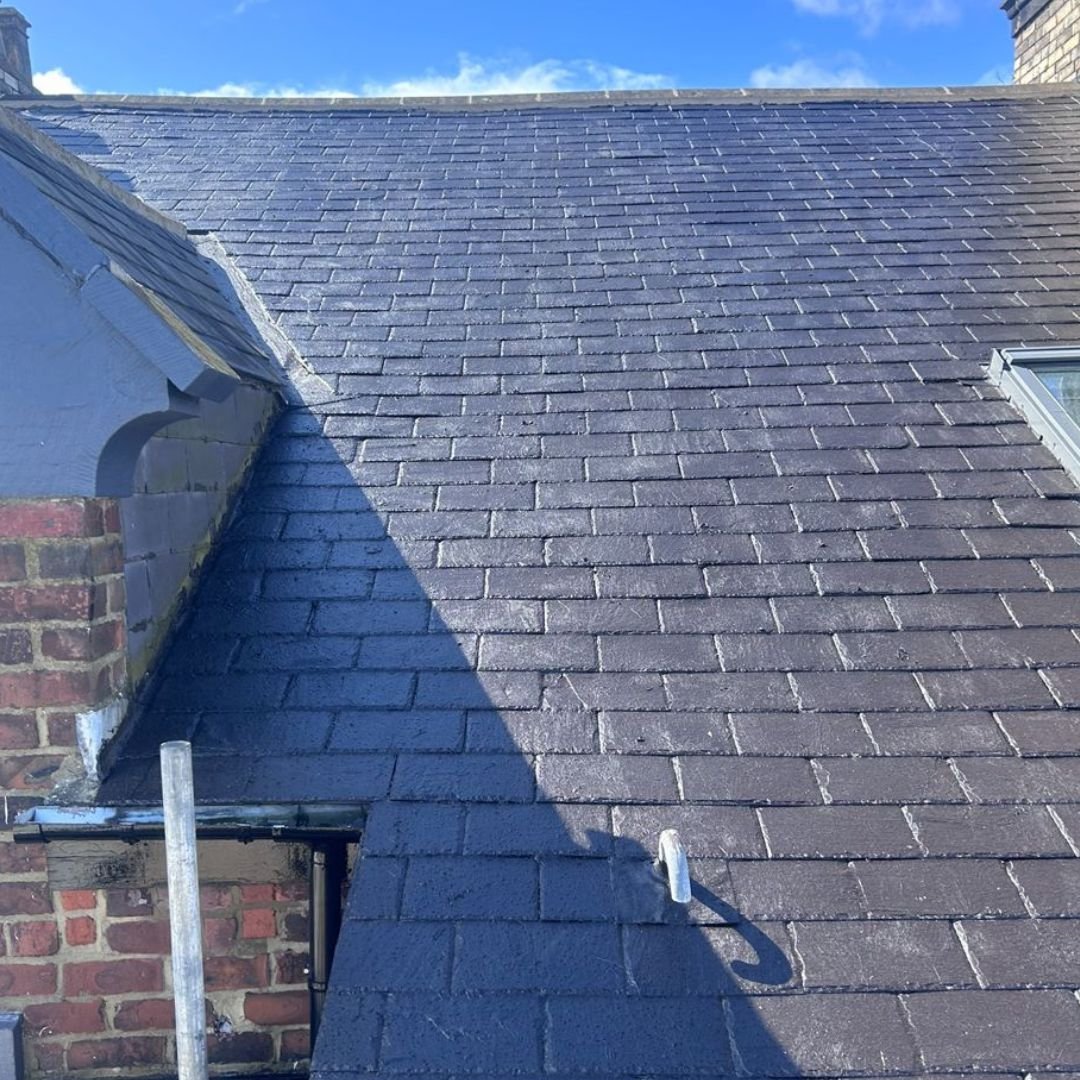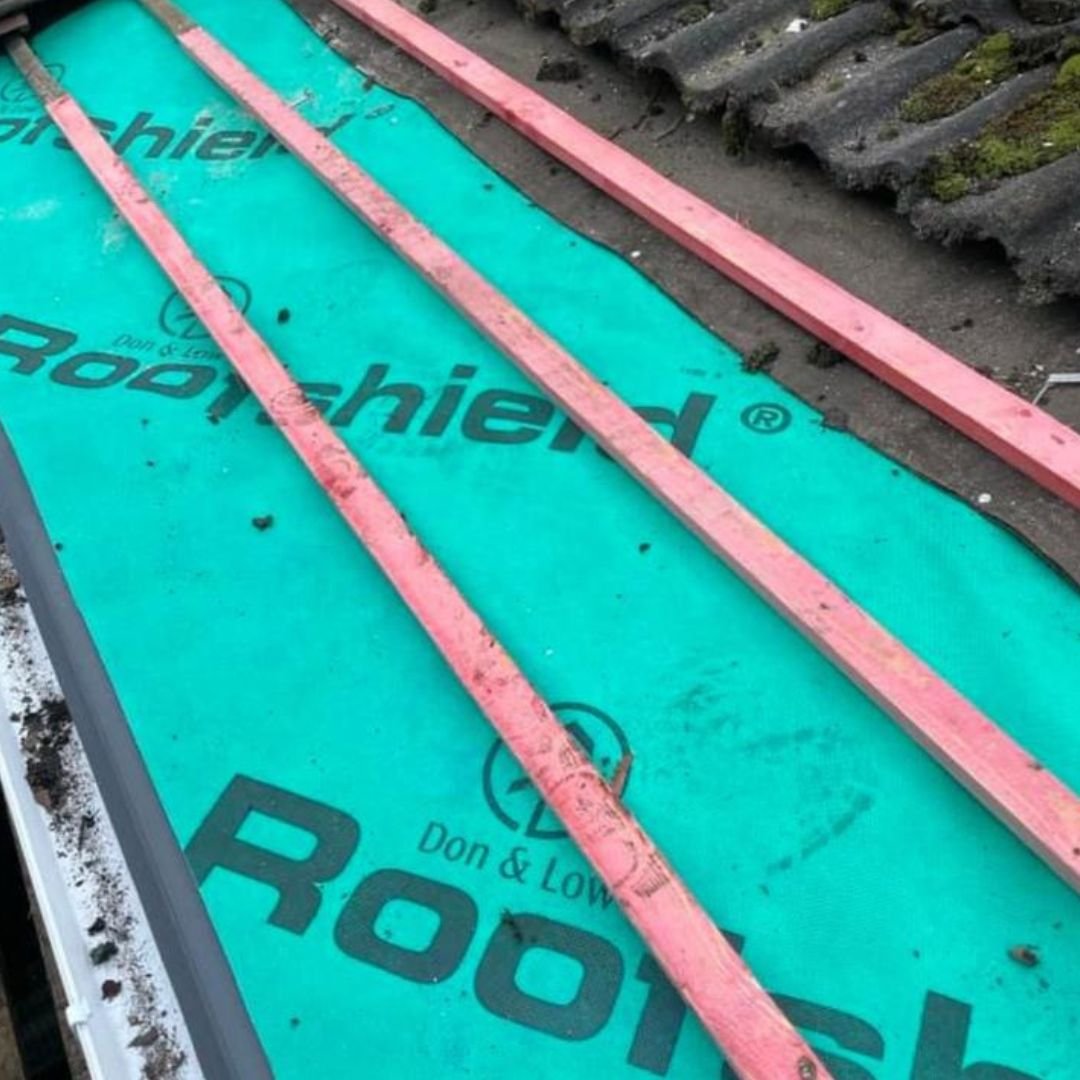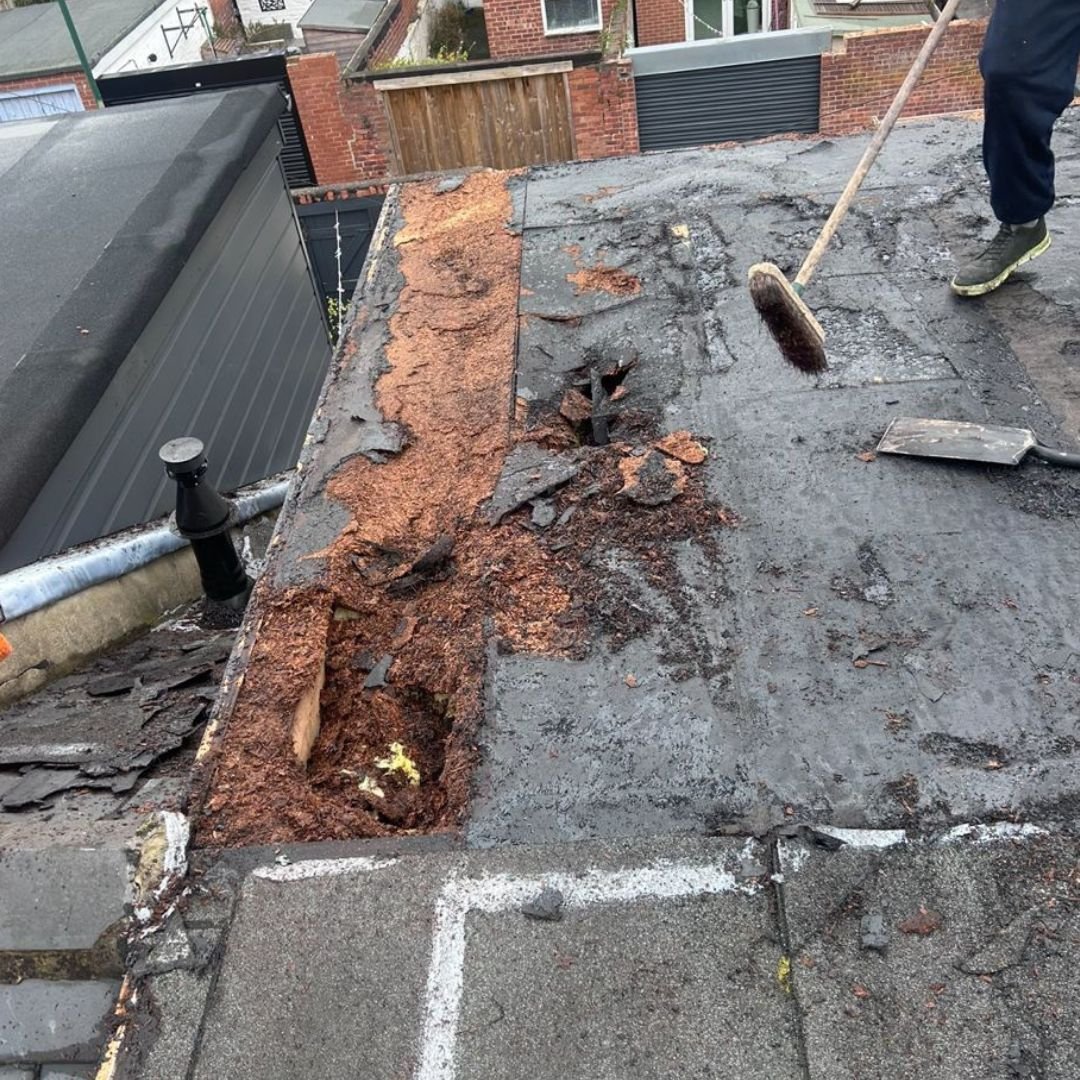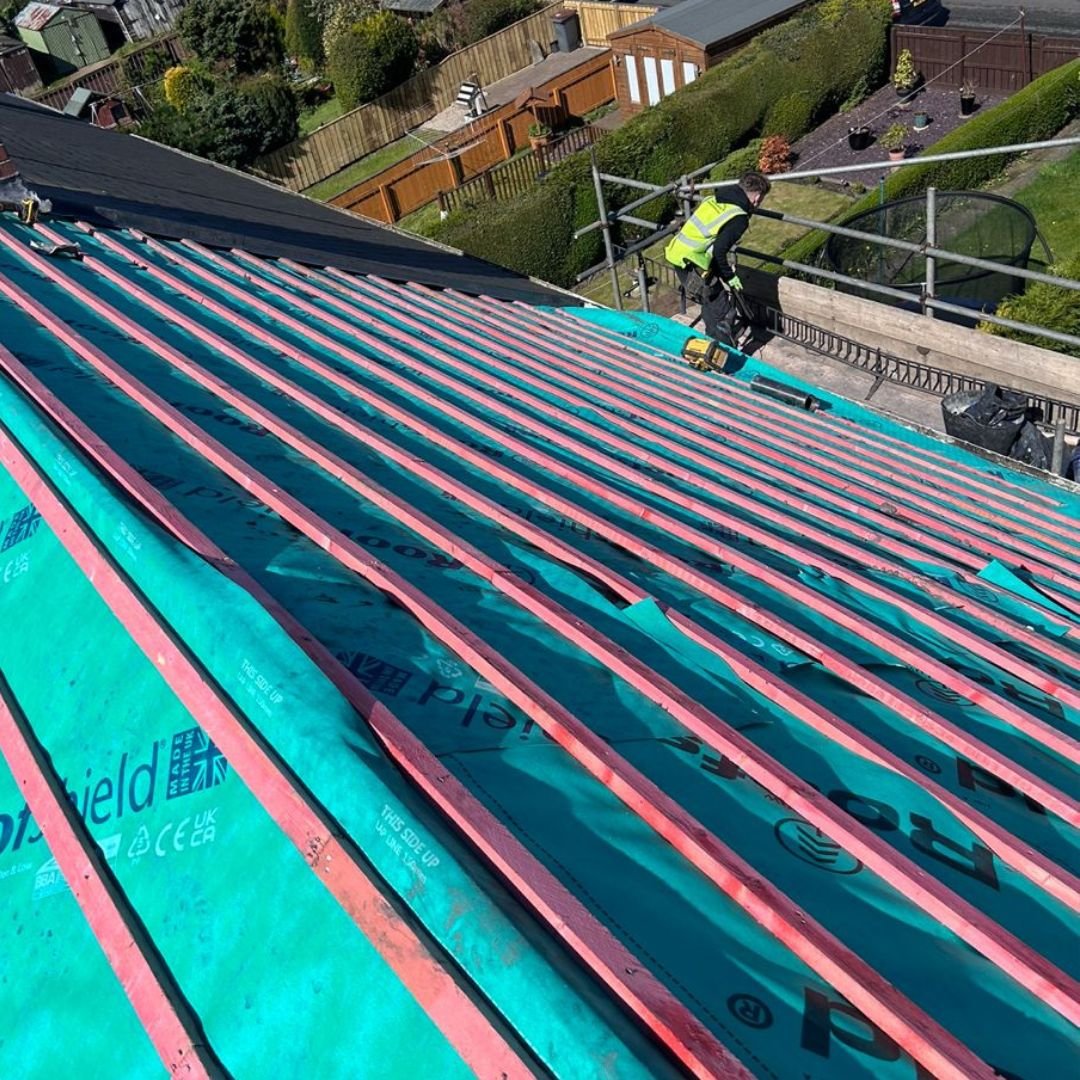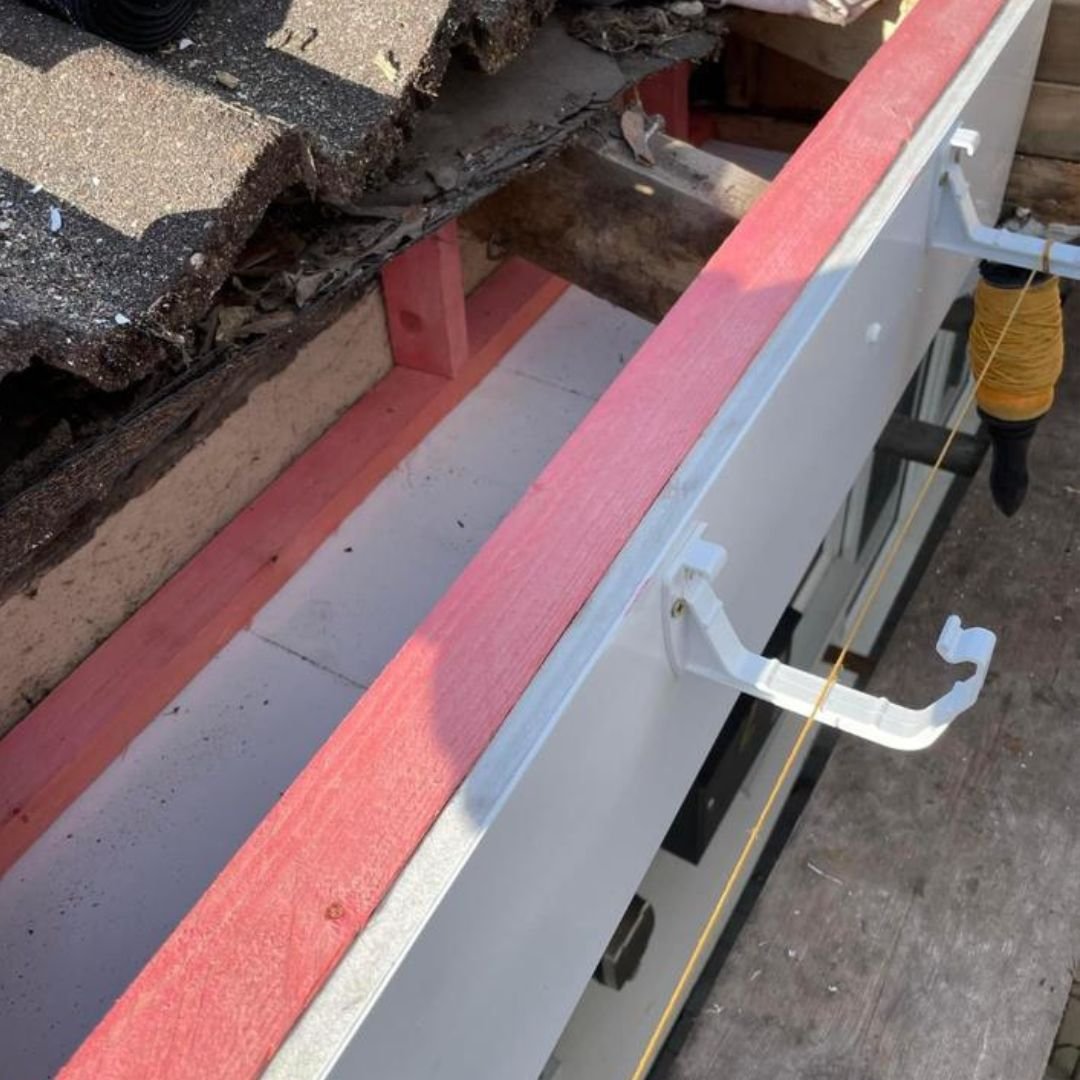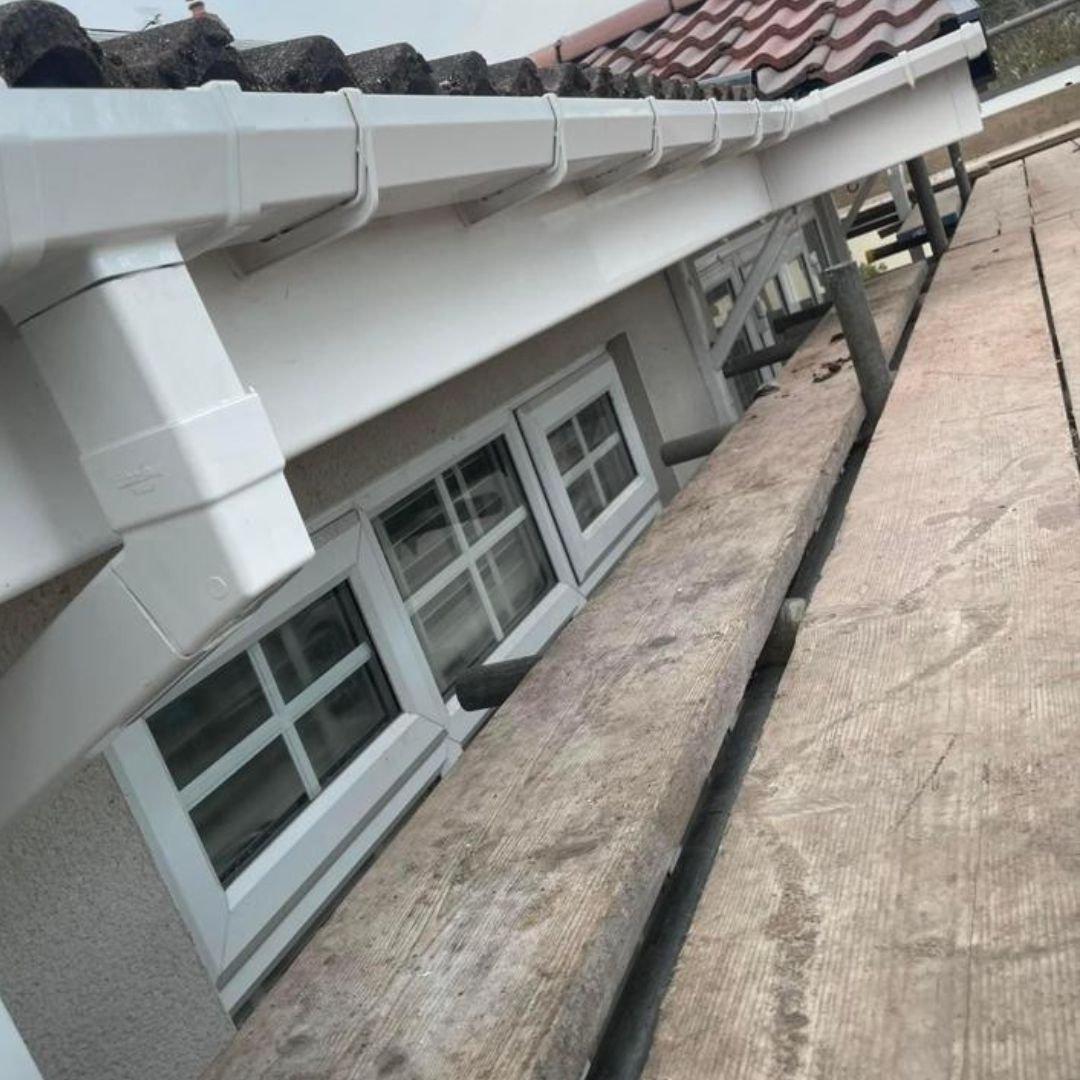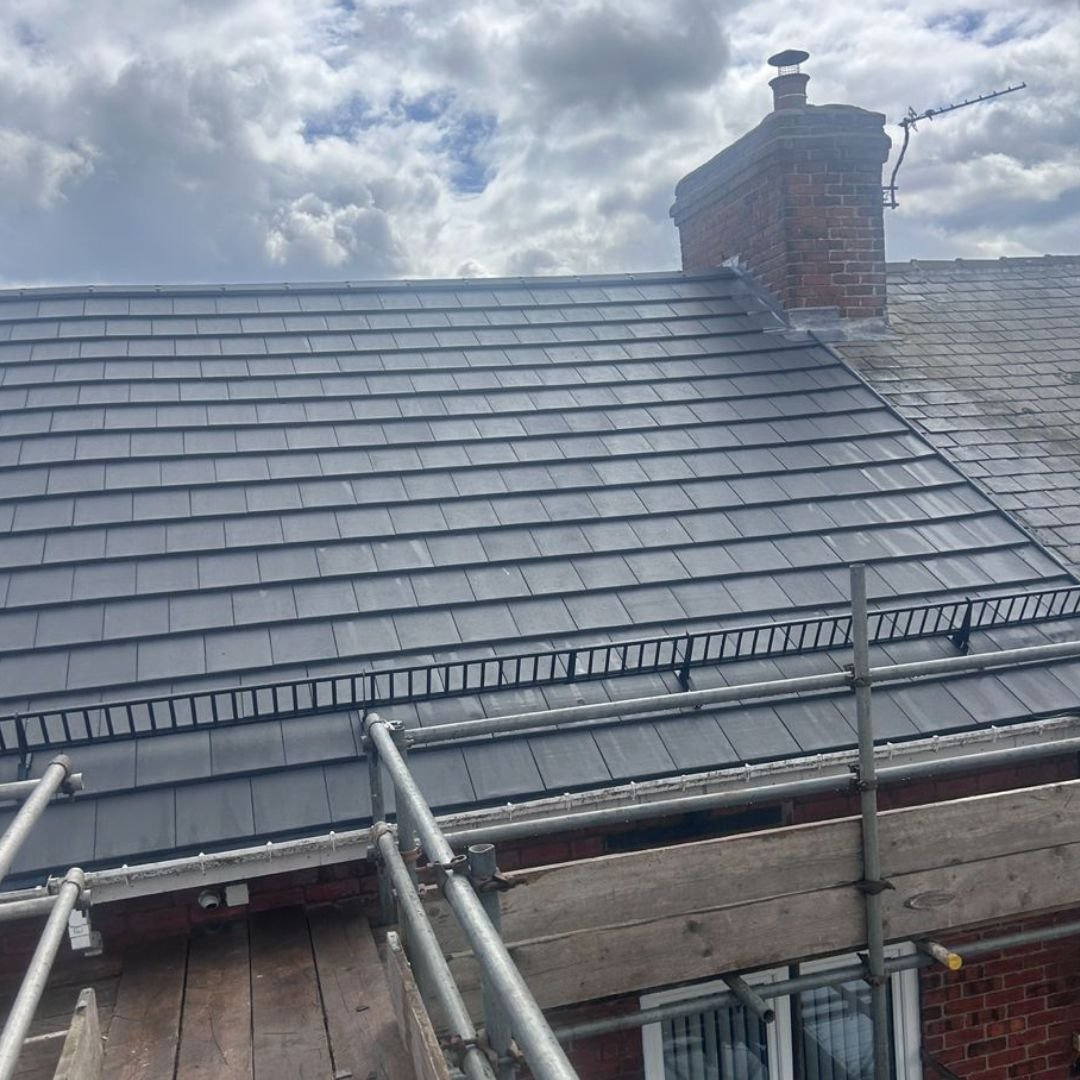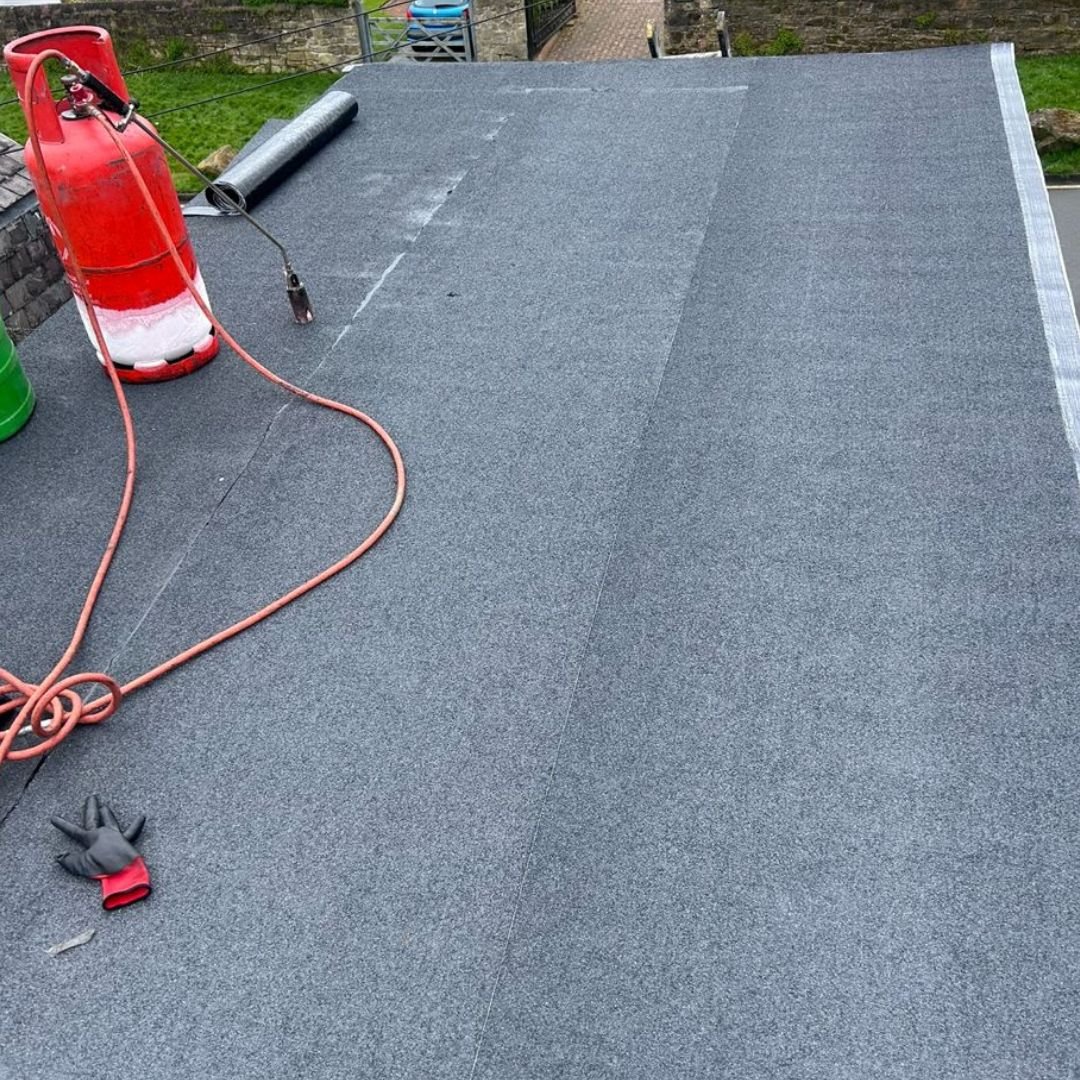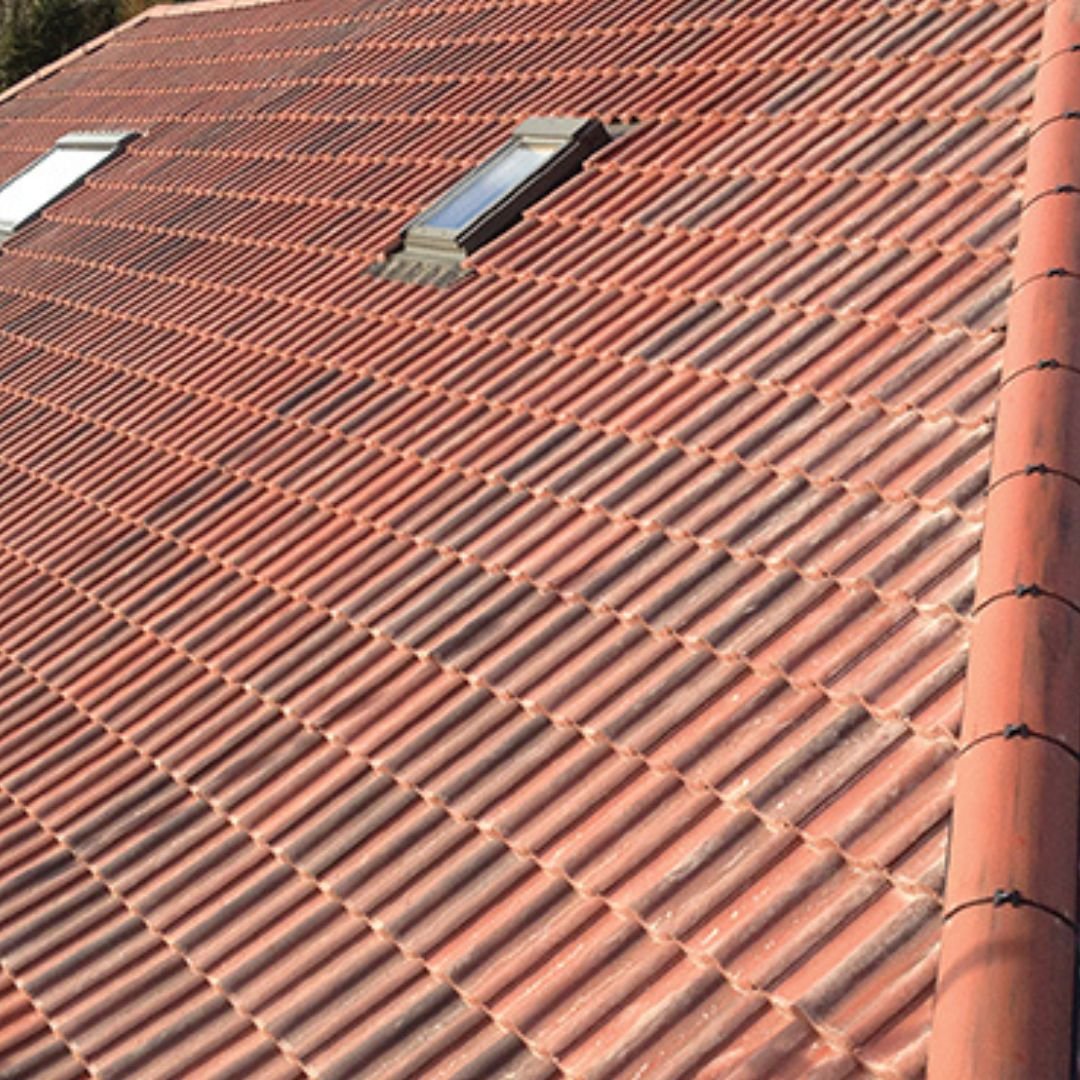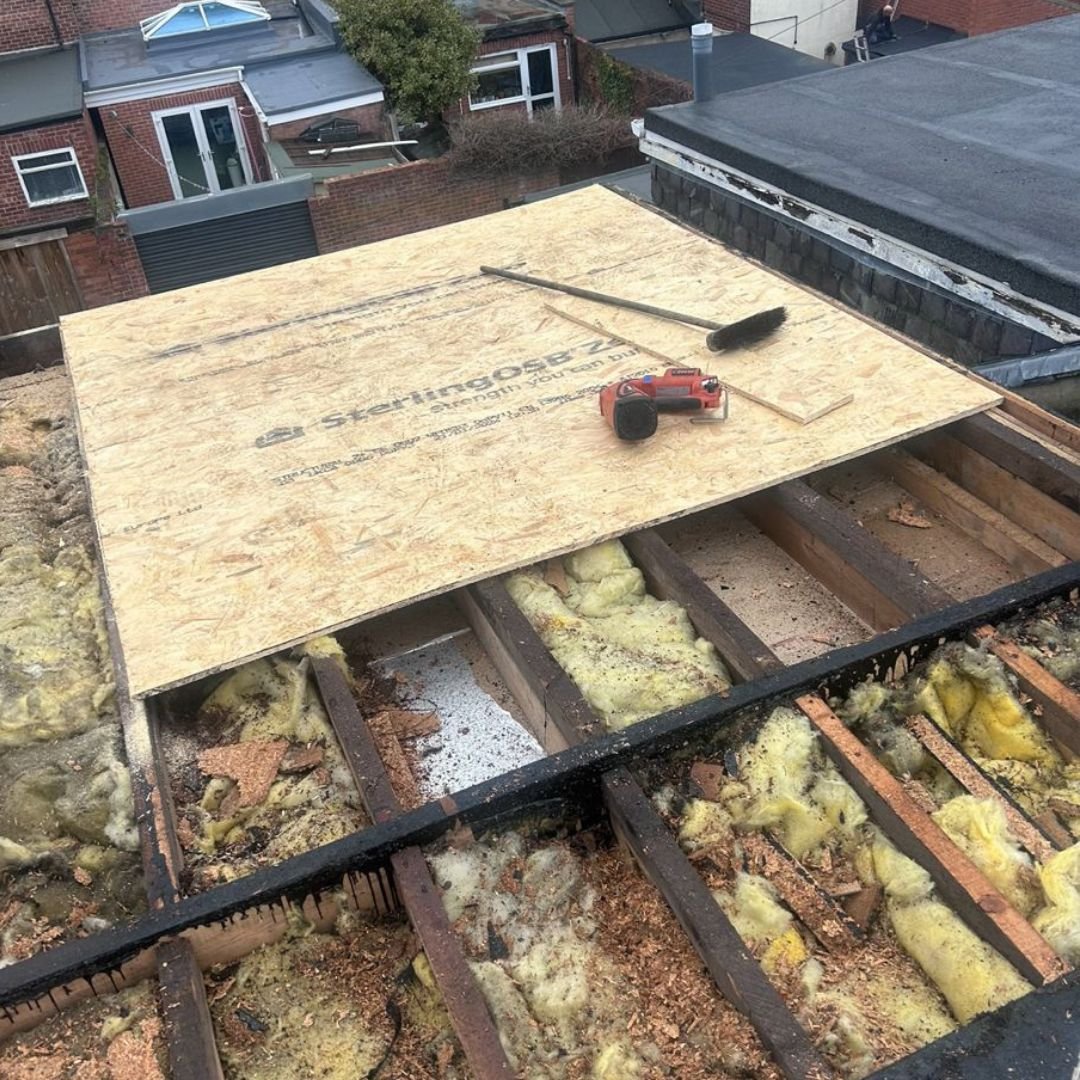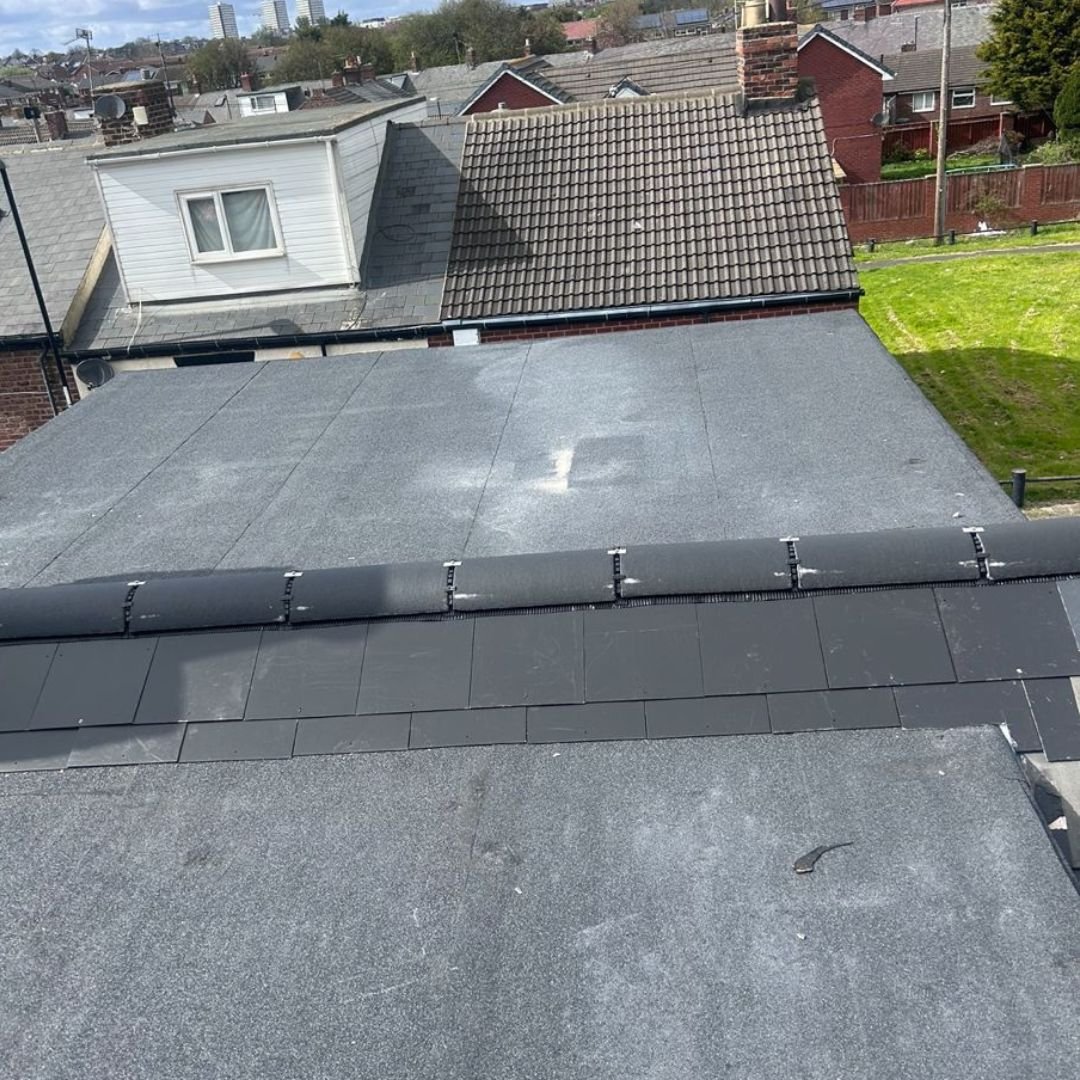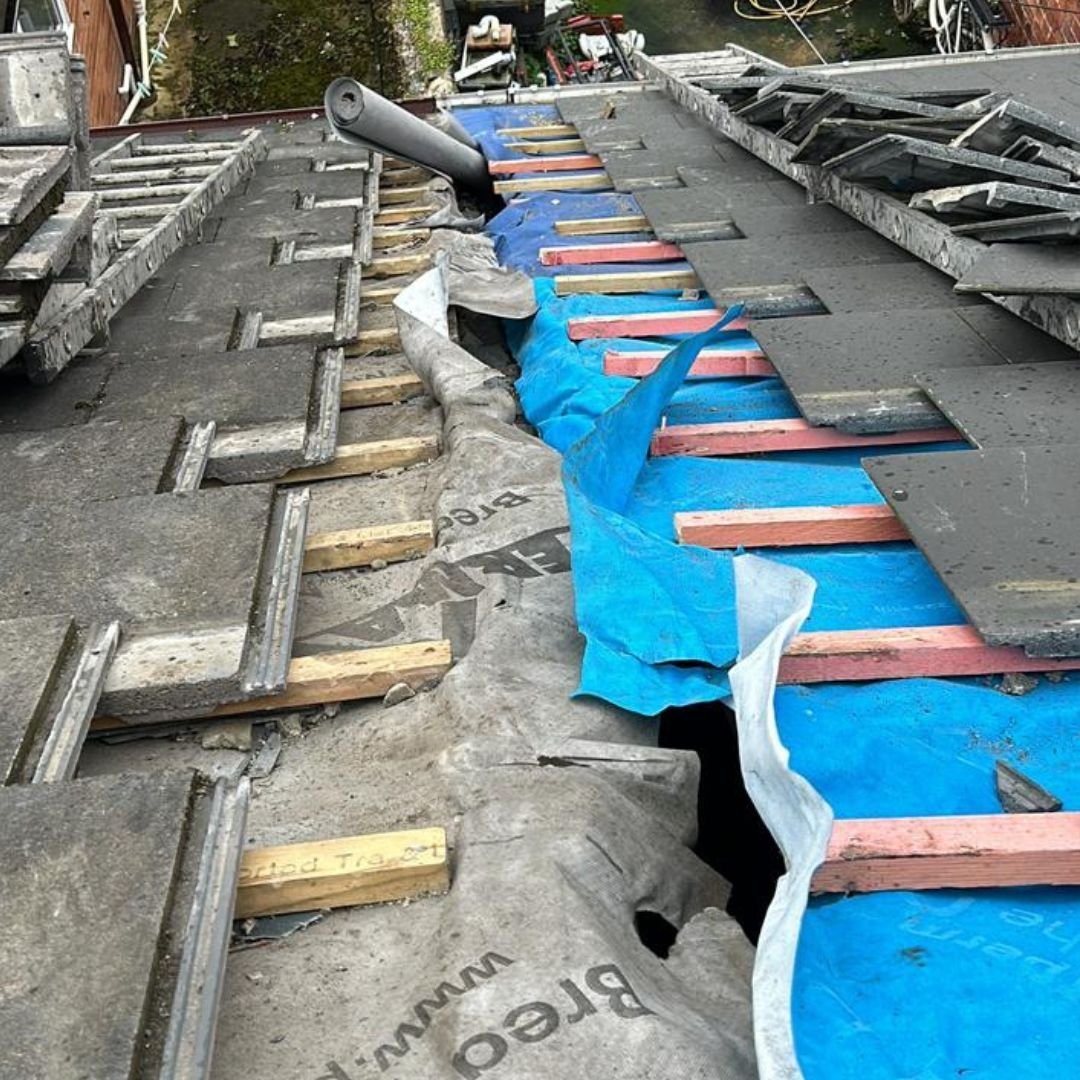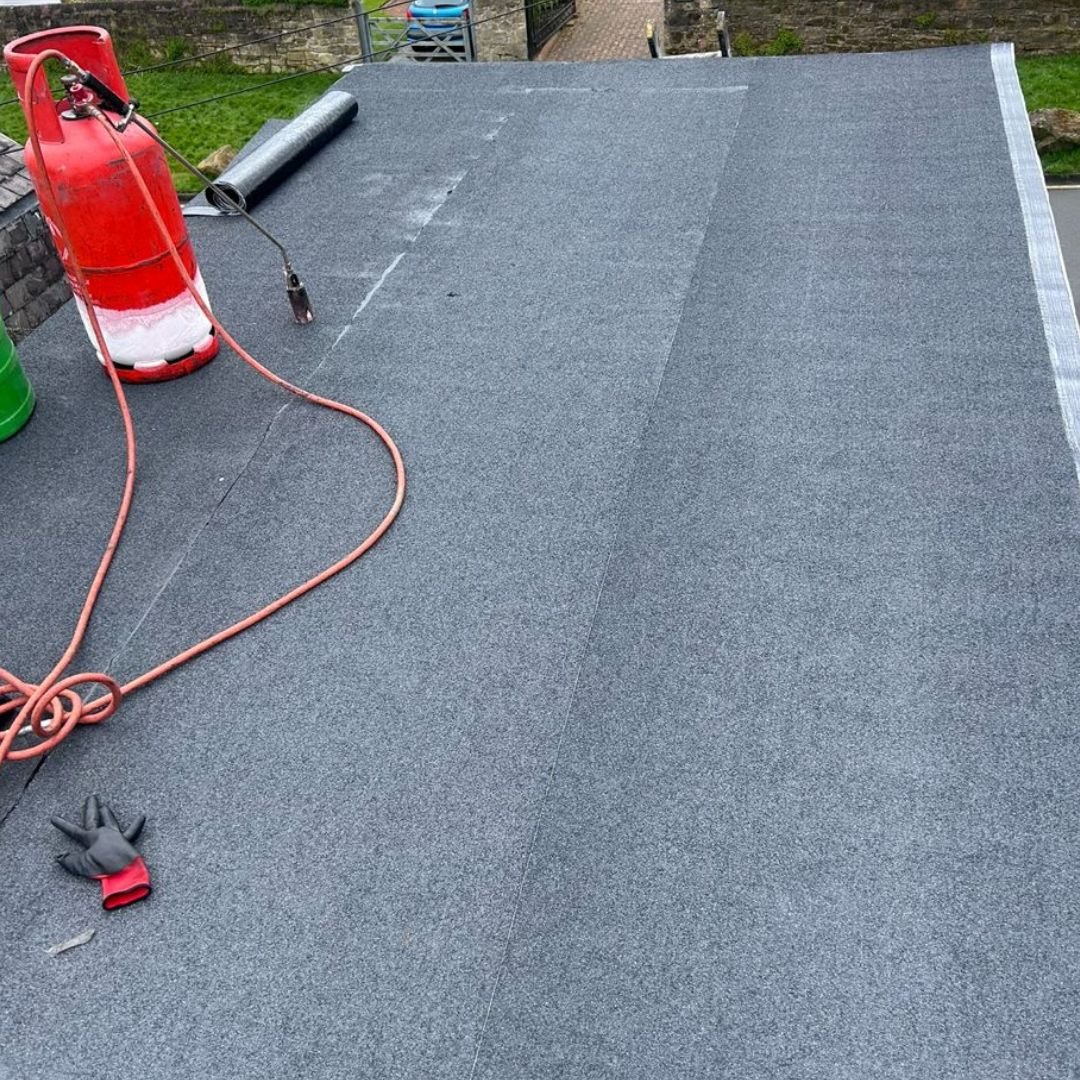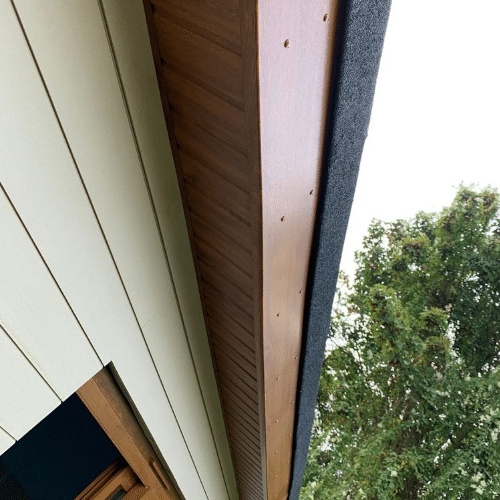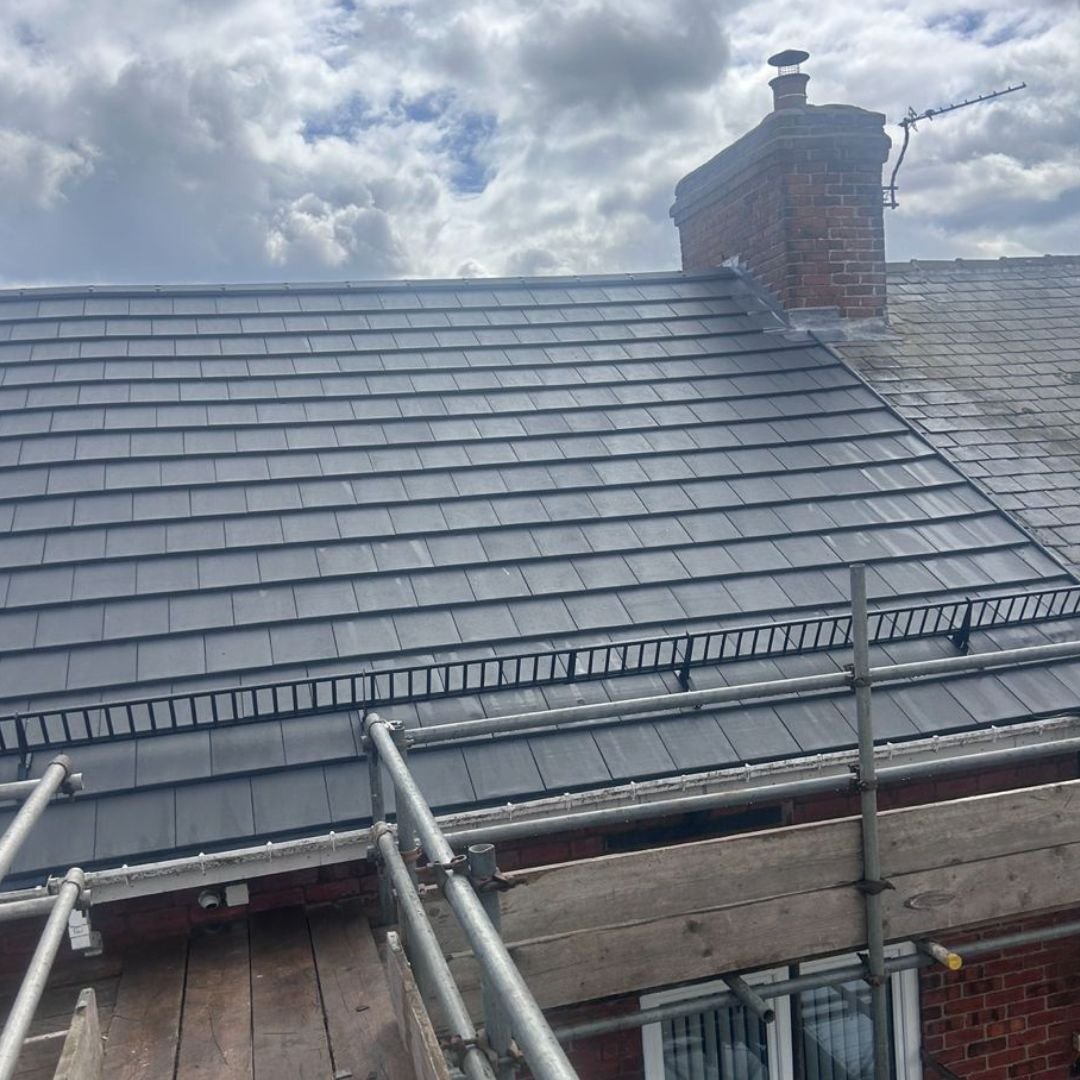Flat Roofs
We specialise in flat roofs and have over a decade of experience with residential and commercial roofing.
New Roofs
Need roof repairs or a brand-new roof? We've got you covered. We can help you choose the perfect roof to meet all your needs.
Roof Repairs
Bad weather can damage your roof. Repair it quickly to prevent leaks and further damage.
Roof Cleaning
We provide and installs top-notch gutters, fascias, and soffits. We also offer maintenance-free and weather-resistant UPVC guttering.
Apex Roofing Solutions is a professional roofing company based in Sunderland, proudly serving Sunderland and the surrounding areas.
Quality You Can Trust: We’ve built a strong reputation for delivering top-notch quality in all our services. Our commitment to excellence means that our customers return to us time and time again for all their roofing needs.
Roof Repairs: From minor fixes to major repairs, we handle it all with precision and care.
New Roof Installations: Whether you need a roof for a new build or a complete replacement, we provide durable and aesthetically pleasing solutions.
Emergency Roofing Services: We understand that roofing issues can arise at any time, which is why we offer prompt emergency services to address urgent problems.
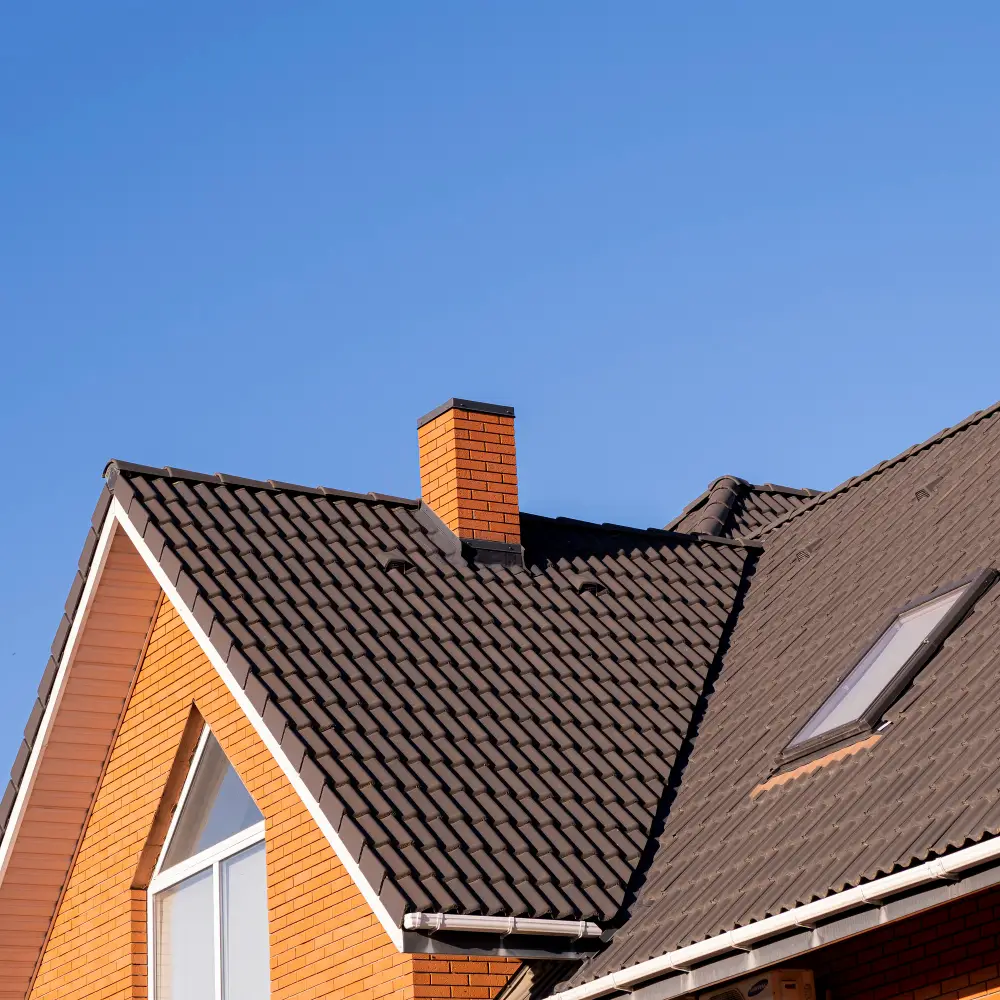
Skilled Roofing Team
Apex Roofing Solutions' experience is unmatched, backed by extensive knowledge and skills in the roofing industry. Approved Roofing & Building Specialists Ltd provide advice and guidance for all projects.
Clean & Tidy
We strive to leave our customers satisfied with our high-quality work, causing minimal disruption and ensuring your property is clean and tidy when we finish.
Wide Coverage
Apex Roofing Solutions' experience is unmatched, backed by extensive knowledge and skills in the roofing industry. Apex Roofing Solutions provide advice and guidance for all projects.
Experienced Tradesmen
Apex Roofing Solutions have years of expertise in various roofing services. We pride ourselves on delivering top-notch results that meet your expectations.
Clean & Tidy
We strive to leave our customers satisfied with our high-quality work, causing minimal disruption and ensuring your property is clean and tidy when we finish.
Free Quotation
Apex Roofing Solutions gladly provides FREE, no-obligation quotes. We're dedicated to collaborating closely with you on all your projects.
Testimonials
Contact Apex Roofing Today
Flat roofing, characterized by its nearly level surface with a slight pitch for drainage, is a prevalent choice in both residential and commercial properties. Unlike traditional pitched roofs, flat roofs offer a range of benefits that make them suitable for various applications. The most common uses include residential buildings, commercial establishments, and even industrial complexes. Flat roofing systems are particularly advantageous in urban settings where maximizing space is essential.
One of the primary advantages of flat roofing is the efficient use of space. Unlike sloped roofs, flat roofs can be utilized for additional purposes, such as rooftop gardens, HVAC systems, or even recreational areas, making them a versatile option. Moreover, flat roofs are generally easier and safer to access for maintenance and inspections, which can be a significant advantage for property owners. This ease of access can lead to reduced maintenance costs over time.
Flat roofing systems are typically constructed using various materials, each chosen for specific performance characteristics. Common materials include built-up roofing (BUR), modified bitumen, and single-ply membranes such as EPDM, TPO, and PVC. These materials are selected based on factors such as durability, weather resistance, and ease of installation. The general structure of a flat roof often involves multiple layers, including a vapor barrier, insulation, waterproof membrane, and a protective surface layer. This multi-layered approach ensures the roof is weather-tight and provides insulation to improve energy efficiency.
In Sunderland, flat roofing is especially popular due to its cost-effectiveness and adaptability to different building designs. Property owners appreciate the ability to install solar panels, create green roofs, or simply have a reliable and durable roofing solution that requires minimal upkeep. With advancements in roofing materials and techniques, flat roofing has become more robust and resilient, ensuring long-term performance and value for both residential and commercial properties.
Benefits of Choosing Flat Roofing in Sunderland
Flat roofing offers a myriad of benefits, particularly suited to Sunderland’s unique climate and urban landscape. One significant advantage of flat roofing is its cost-effectiveness. The materials used for flat roofs tend to be less expensive than those required for pitched roofs. Additionally, the installation process is generally quicker and less labor-intensive, translating to lower installation costs. This makes flat roofing a financially attractive option for both residential and commercial properties in Sunderland.
Another notable benefit is the ease of maintenance. Flat roofs allow for straightforward inspections and repairs due to their accessible surface. This accessibility can be especially advantageous in Sunderland, where frequent weather changes necessitate regular roof maintenance. The simplicity in upkeep reduces long-term maintenance costs, ensuring the roof remains in good condition for an extended period.
Moreover, flat roofs provide the potential for additional usable space, a valuable asset in urban areas. Homeowners and businesses can utilize this space for various purposes, such as creating rooftop gardens, installing solar panels, or even setting up recreational areas. In densely populated regions of Sunderland, where space is at a premium, a flat roof can significantly enhance the utility of a building.
Flat roofing is also highly adaptable to different types of buildings, making it a versatile choice for Sunderland’s diverse architectural landscape. Whether it’s a modern commercial building or a traditional residential home, flat roofs can be tailored to meet specific design and functional requirements. This adaptability ensures that flat roofing can complement the aesthetic and structural needs of various properties.
In conclusion, the combination of cost-effectiveness, easy maintenance, and the potential for additional usable space, along with its adaptability to various building types, makes flat roofing an excellent option for Sunderland’s climate and urban environment. These benefits collectively underscore the practicality and value of choosing flat roofing for your property in Sunderland.
Common Flat Roofing Materials
When it comes to flat roofing services in Sunderland, selecting the right material is crucial for ensuring durability, cost-effectiveness, and suitability to the local climate. Several materials stand out as popular choices, each with unique properties, benefits, and drawbacks. Understanding these options can help homeowners and property managers make informed decisions.
EPDM Rubber: Ethylene Propylene Diene Monomer (EPDM) is a durable synthetic rubber membrane widely used in flat roofing. It offers excellent resistance to UV radiation, ozone, and extreme weather conditions. EPDM is also known for its flexibility, which allows it to accommodate structural movements without cracking. However, its black surface can absorb heat, making it less energy-efficient in warmer climates. Installation requires precision to ensure water-tight seams.
TPO (Thermoplastic Olefin): TPO is a single-ply roofing membrane that combines the benefits of EPDM and PVC. It is known for its energy efficiency due to its reflective surface, which reduces cooling costs. TPO is resistant to UV radiation, chemical exposure, and punctures. However, its relatively recent introduction to the market means long-term performance data is still being gathered. Proper installation is critical to avoid issues with seam integrity.
PVC (Polyvinyl Chloride): PVC roofing membranes are highly durable and resistant to fire, chemicals, and punctures. They are also energy-efficient, with reflective surfaces that help reduce cooling costs. PVC roofs have a long lifespan and are easy to install. However, they can become brittle in extreme cold, and the production of PVC raises environmental concerns due to the release of toxins during manufacturing.
Modified Bitumen: This material is an evolution of traditional asphalt roofing, offering improved flexibility and durability. Modified bitumen is often applied in multiple layers, providing excellent waterproofing. It is resistant to heavy foot traffic and impacts. However, it can be more labor-intensive to install and may have a shorter lifespan compared to synthetic membranes. The black surface can also contribute to heat absorption, raising cooling costs in warmer climates.
Choosing the right flat roofing material depends on various factors, including climate, budget, and specific structural needs. Consulting with a professional roofing contractor can provide valuable insights tailored to the unique requirements of each project.
Installation Process for Flat Roofs
The installation of a flat roof is a meticulous process that requires careful planning, precision, and adherence to safety standards. The initial step involves a thorough assessment of the building’s structure to ensure it can support a flat roof. This assessment helps identify any structural issues that need addressing before installation begins. Following the assessment, the preparation phase includes the removal of any existing roofing materials and debris to create a clean, even surface.
Once the surface is prepared, the next step is to install a vapor barrier and insulation. These components are crucial for preventing moisture penetration and improving energy efficiency. A vapor barrier is typically made of polyethylene or similar materials, while insulation options range from rigid foam boards to more advanced solutions like spray foam. Proper installation of these layers ensures the longevity and performance of the flat roof.
The roofing membrane, which can be made of materials such as EPDM (ethylene propylene diene monomer), TPO (thermoplastic polyolefin), or modified bitumen, is then carefully laid out and secured. Each type of membrane has its unique advantages, such as durability, flexibility, and ease of maintenance. The choice of membrane depends on specific requirements and budget considerations.
During the installation, the use of appropriate tools and adherence to safety precautions is paramount. Essential tools include utility knives, seam rollers, and hot air welders, among others. Safety measures, such as wearing protective gear and ensuring proper ventilation, help mitigate risks associated with the installation process.
Hiring professional services for flat roof installation is highly recommended, as experienced contractors possess the expertise to handle potential challenges effectively. Common challenges include ensuring proper drainage to prevent water pooling and addressing any unexpected structural issues that may arise. Professionals are equipped to navigate these issues, ensuring a seamless and durable installation.
Upon completion, a final inspection is conducted to verify the quality of the installation and identify any areas requiring attention. This inspection ensures that the flat roof meets all safety and performance standards, providing peace of mind and long-term protection for the building.
Maintenance and Repair of Flat Roofs
Maintaining a flat roof is crucial to ensure its longevity and optimal performance. Regular maintenance tasks play a significant role in preventing severe issues and extending the lifespan of the roof. One of the primary tasks is cleaning the gutters. Gutters that are clogged with debris can cause water to back up and pool on the roof, leading to leaks and structural damage. It is advisable to clean the gutters at least twice a year, particularly in the autumn when leaves tend to accumulate.
Another essential maintenance task is checking for leaks. Flat roofs are more susceptible to leaks because water does not drain as quickly as it does on pitched roofs. Regular inspections, especially after heavy rain or storms, can help identify and address leaks early. Pay special attention to seams, flashing, and areas around roof penetrations such as vents and chimneys. Using a high-quality sealant to repair small cracks and holes can prevent minor issues from becoming major problems.
Common repair issues for flat roofs include blistering, ponding water, and membrane damage. Blistering occurs when air or moisture gets trapped under the roofing material, causing bubbles or blisters to form. This can be resolved by cutting away the blistered area and applying a patch. Ponding water, which is water that remains on the roof for more than 48 hours, can lead to membrane deterioration. Improving the roof’s drainage system or installing tapered insulation can help mitigate this issue. Membrane damage, such as punctures or tears, often results from foot traffic or falling debris. Repairing these damages promptly with appropriate materials is vital to maintaining the roof’s integrity.
Regular inspections and timely repairs are essential for maintaining the health of a flat roof. Scheduling professional inspections annually, in addition to your routine checks, can help identify potential issues that may not be visible to the untrained eye. By adhering to a consistent maintenance schedule and addressing repairs promptly, property owners can significantly extend the life of their flat roofing system, ensuring it remains in good condition for years to come.
Choosing a Flat Roofing Service Provider in Sunderland
When selecting a flat roofing service provider in Sunderland, it’s crucial to consider several key factors to ensure you make a well-informed decision. Experience is paramount; a company with a long history in the industry is likely to have a proven track record of successful projects and satisfied customers. Look for providers that have specialized in flat roofing for many years, as this indicates a deep understanding of the specific requirements and challenges associated with this type of roofing.
Qualifications and certifications are also important indicators of a reliable flat roofing service provider. Ensure that the company you choose employs licensed and insured professionals. This not only guarantees that they have the necessary skills and knowledge but also provides you with protection in case of any accidents or damages during the project.
Customer reviews can offer valuable insights into the quality of service provided. Check online reviews and testimonials on the company’s website and on independent review platforms. Positive feedback from previous clients is a good sign of reliability and high-quality workmanship. Additionally, consider asking for references that you can contact directly to get a firsthand account of their experience with the provider.
Warranty offerings are another critical factor to consider. A reputable flat roofing service provider should offer a comprehensive warranty on both materials and labor. This ensures that you are covered in the event of any issues arising after the project is completed. Be sure to understand the terms and conditions of the warranty, including its duration and what it covers.
When requesting quotes, it’s advisable to get multiple estimates from different providers. This allows you to compare prices and services, ensuring you get the best value for your investment. However, beware of quotes that seem unusually low, as they may indicate subpar materials or workmanship.
Asking the right questions can help you gauge the provider’s expertise and reliability. Inquire about their experience with similar projects, the types of materials they use, and their approach to project management. Additionally, ensure that the company adheres to local regulations and building codes, as non-compliance can lead to significant issues down the line.
By taking these factors into account, you can confidently choose a flat roofing service provider in Sunderland that meets your needs and delivers high-quality results.
Cost Considerations for Flat Roofing
When evaluating the costs associated with flat roofing in Sunderland, several factors must be taken into account to ensure a comprehensive budget. Primarily, the costs can be categorized into materials, labor, and additional services such as insulation and drainage systems. Understanding these elements will help in making informed decisions and achieving a cost-effective yet high-quality flat roofing solution.
The choice of materials significantly influences the overall cost of a flat roof. Common materials include EPDM rubber, PVC, TPO, and modified bitumen, each with its own price range and durability. For instance, EPDM rubber is popular for its cost-efficiency and longevity, whereas PVC and TPO offer enhanced energy efficiency but at a higher price point. The selection of material should align with both budget constraints and the specific needs of the building.
Labor is another crucial component of flat roofing costs. The complexity of the roof design, the size of the roof, and the experience level of the roofing contractors can all impact labor costs. Larger and more complex roofs require more time and skill, thereby increasing labor expenses. It is advisable to obtain quotes from multiple reputable roofing companies to get a realistic estimate and ensure competitive pricing.
Additional services such as insulation and drainage systems also contribute to the overall cost. Proper insulation is essential for energy efficiency and maintaining indoor comfort, while an effective drainage system is critical to prevent water accumulation and potential damage. Investing in these services can lead to long-term savings despite the initial cost increase. Modern insulation materials and advanced drainage solutions, though potentially more expensive upfront, offer better performance and durability.
To manage costs effectively, it is essential to plan and budget carefully. Start by defining the scope of the project, and then prioritize essential features. Comparing different materials and obtaining multiple quotes can unveil cost-effective solutions without compromising quality. Additionally, consider the long-term benefits and potential savings from investing in high-quality materials and services.
Call 07440353115 for a no-obligational quotation.
